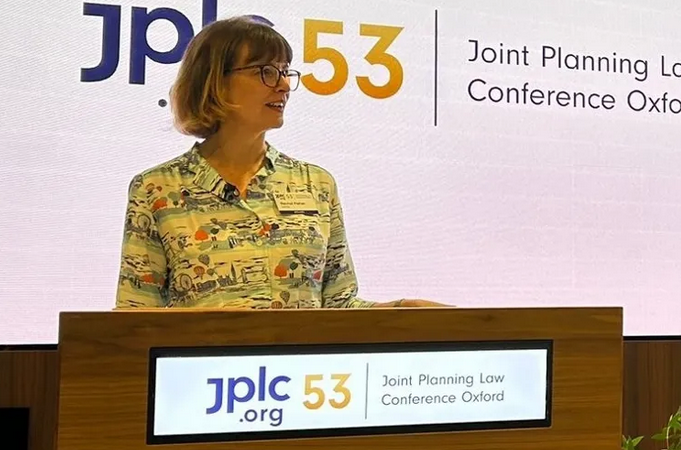The 2021 London Plan has failed to stimulate the delivery of Purpose Built Student Accommodation (PBSA) in the UK capital, specifically affordable PBSA, with just 3,100 affordable beds securing planning consent since the Plan was launched.
These consented figures equate to providing rooms for less than 1% of London’s 400,000+ full-time students.
According to new research by CBRE and QX Global, the gap between demand for PBSA and available supply in London currently stands at 100,000 – 105,000 full-time students, underscoring how demand for student housing has outpaced supply. As a result, the current development pipeline is not active enough to support the housing need.
Due to various issues including development viability and the complexity of the planning system, both amplified by the London Plan, the delivery of affordable PBSA is being stifled. If all schemes in the pipeline included the London Plan’s identified proportion of affordable rooms, there would be just 7,600 affordable beds earmarked for delivery to the market. However, the market is currently seeing even less than that, at around 5,800 affordable beds, leaving a deficit of 1,800 against targets.

The research cites the Greater London Authority’s (GLA) 2018 paper ‘Student Population Projections and Accommodation Need for New London Plan 2017’, which identified a net need of approximately 88,000 additional PBSA beds between 2016 and 2041, or 3,500 when annualised over 25 years. However, the number of beds delivered or planned for delivery from 2017 to 2028 is just 2,870, when annualised, falling below the GLA’s annual target of 3,500.
Since the London Plan came into effect, just 12,000 PBSA beds (57% of all beds applied for via planning post-Plan) have been consented. Notably, no PBSA beds with planning permission gained under the 2021 London Plan are yet operational.
Due to this chronic shortage of beds, students are being forced to resort to other accommodation options, including Houses of Multiple Occupation (HMO). The squeeze on beds is being further heightened by decreasing HMO stock which has shrunk by 23% in the last five-years, equal to 43,000 lost dwellings (Local Authority Housing Statistics). This could lead to greater competition for HMO housing in the future, putting further pressure on already rising rents.
Affordability is a key component of the Plan’s Policy H15*, which sets out that as many affordable rooms as possible are to be provided in future developments, with a target of 35%. The rents for these affordable rooms should not exceed 55% of the maximum London maintenance loan, which equates to £188 per week in the 2023/24 academic year over 38-weeks.
Crucially, maintenance loans have not kept pace with inflation, further challenging the viability of developing new PBSA and disconnecting rents from construction and operational costs. In turn, the lack of development is heightening pressure on rents for existing PBSA due to demand and supply dynamics. Median weekly rent for an en-suite bed in Zone 1 PBSA for 2023/24 is £398, versus £275 in Zone 4, based on 38 – 44-week tenancies.
Kirsten Dyer, Director, Living Valuation and Advisory at CBRE, said: “The numbers are compelling and it is clear delivery of both affordable and market rent PBSA is far below the levels required to support London’s domestic and international student body. The target of 3,500 rooms per annum is not being met, not enough universities are engaged in the issue, and a restricted group of developers dominate the market because of the challenges the London Plan now presents.”
Post-London Plan, the development of PBSA appears to be restricted to specialist developers with 45% of beds (over 9,600) applied for by just five developers, highlighting how the added complexity of the London Plan is deterring wider entrants to the space.
In tandem, consented beds are not distributed evenly across London’s boroughs. In Westminster, Camden, Tower Hamlets and Islington – where 59% of the full-time student population study - there are just 1,300 beds with extant planning permission post-Plan. Development activity is mostly occurring in Newham (Stratford), Southwark, City of London and Brent (Wembley).
David Tymms, Strategic Advisor at QX Global Group, said: “Adopted with the best of intentions, the London Plan has failed in its mission to deliver meaningful growth in new market rent and affordable student beds in the capital. The complexities of the planning process, alongside viability challenges, have driven many developers out of the market and only the largest universities appear to be equipped to engage. With just 3,100 affordable rooms consented to date and a tightening HMO environment, the prospects for lower income background students seeking to study in the capital look set to remain bleak for some time to come.”
Dyer added: “It’s evident that our capital will, for some years, remain a challenging environment for developers, universities, and students. A substantial shift in policy framework is required to encourage a rapid acceleration of development of new build supply.”




















